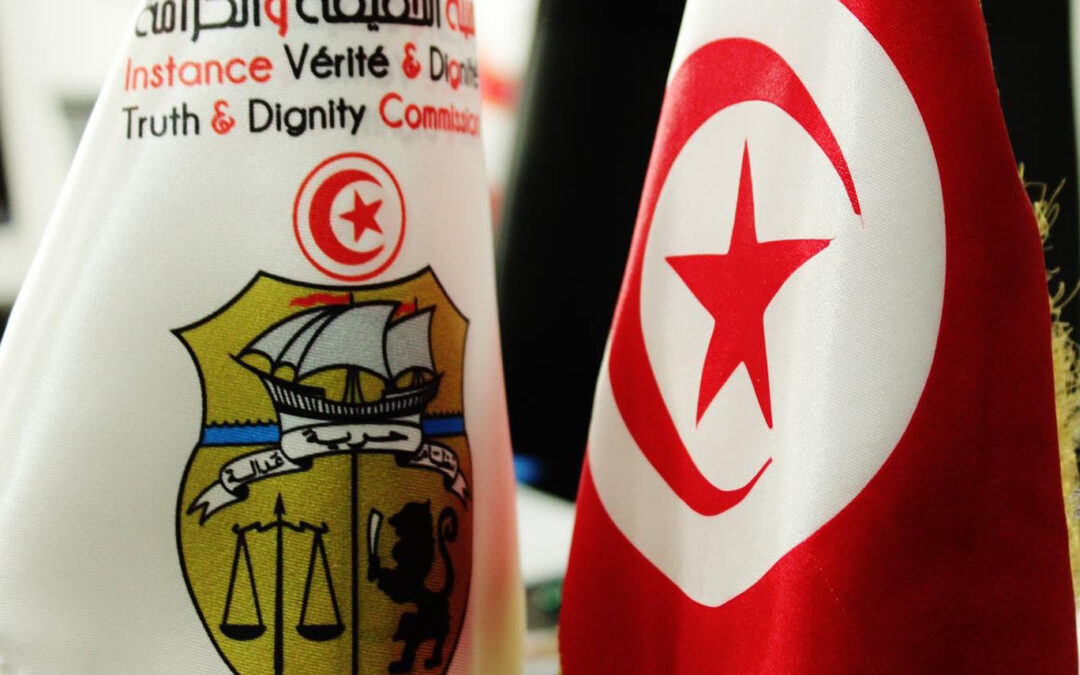
Dec 17, 2018 | Communiqués de presse, Nouvelles
A l’occasion de la Conférence de clôture de l’Instance Vérité Dignité (IVD), les organisations de la société civile félicitent l’Instance qui a abouti à l’achèvement de ses travaux, malgré un contexte politique manifestement hostile au processus.
Aussi, les organisations signataires dénoncent fermement l’absence des trois Présidences au pouvoir à ce rendez-vous historique pour le pays.
Lire la totalité de l’article ci-dessous:
Tunisia-Truth and Dignity Commission Tunisia-News-Press Release-2018-FRE (version française, PDF)
Tunisia-Truth and Dignity Commission Tunisia-News-Press Release-2018-ARA (version arabe, PDF)
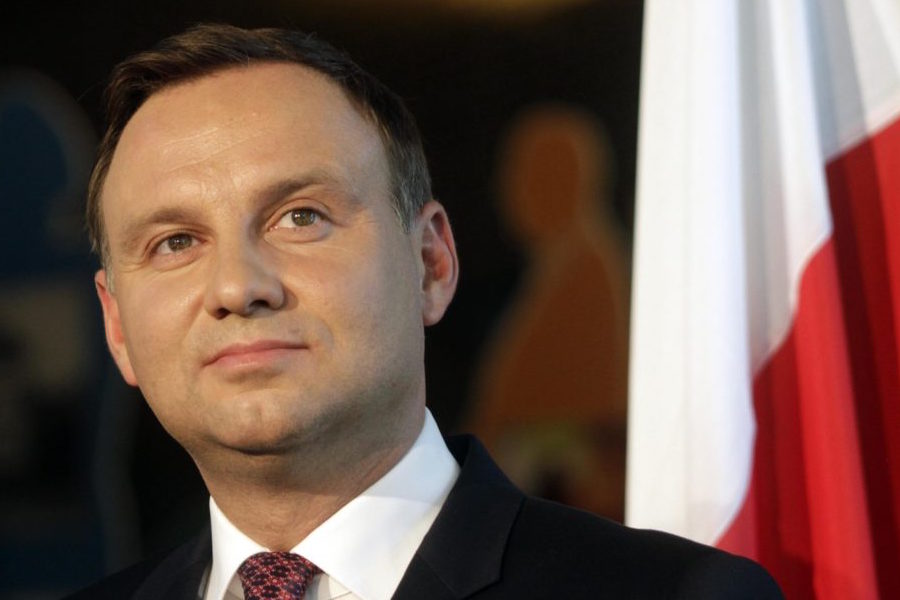
Dec 12, 2018 | News
The ICJ today called on President Andrzej Duda to sign legislation that would require the reinstatement of the Supreme Court justices that were forcibly “retired” in July 2018.
On 21 November 2018, the lower house of the Polish Parliament (Sejm) approved Draft Law no. 3013, which would amend the Law on the Supreme Court. This amendment would ensure that the Supreme Court and Supreme Administrative Court justices who “retired … return in office on the day of entry into force of this Law” (Article 2.1).
The Minister of Justice has stated that the Law is being adopted to implement the EU Court of Justice interim measures issued in the infringement proceedings against Poland for the failure to respect the tenure of its Supreme Court justices.
“The draft law is a step in the right direction to implement the interim measures by the Court of Justice of the EU,” said Massimo Frigo, Senior Legal Adviser for the ICJ Europe and Central Asia Programme.
“It is important that President Duda signs this law promptly to ensure the independence of the judiciary in Poland as well as respect for its obligations under EU law,” he added.
The ICJ however is concerned that this law still refers to the Supreme Court justices to be reinstated as “retired.”
The forced “retirement” of one-third of the Supreme Court Justices constituted effectively a disguised dismissal in breach of international law and EU law standards on the rule of law and the independence of the judiciary.
Any reference to the “retirement” of the Supreme Court Justices should therefore be deleted.
“The Government’s intention that these measures be issued to implement the Court of Justice’s interim measures suggests that these measures are not intended to be permanent,” said Massimo Frigo.
“The Court of Justice and the European institutions should pursue the Article 7 procedure and the infringement proceedings until the forced judicial “retirements” are fully rescinded and no further similar attempts are made to undermine judicial independence and function.”
Background
A law on the Supreme Court, which entered into effect in July 2018, attempted to force the “retirement” of 27 of the 72 Supreme Court judges, including the First President, by lowering the mandatory retirement age for its judges from 70 to 65 years.
The ICJ has condemned the “forced retirement” of the 27 Supreme Court Justices as violating the security of tenure of judges in direct contravention of the principle of judicial independence, as expressed in international law and standards.
These include the UN Basic Principles on the Independence of the Judiciary, Council of Europe standards, the European Court of Human Rights’ jurisprudence and the rule of law principles enshrined in article 2 of the Treaty on European Union.
An ICJ letter of 11 July 2018, signed by 22 senior judges from all regions of the world, urged the Polish government to act immediately to reinstate the forcibly retired judges in office.
The European Commission has recognized the current situation as undermining “the principle of judicial independence, including the irremovability of judges” and has triggered a procedure under Article 7 of the Treaty of the European Union that could ultimately lead to suspension of Poland’s EU voting rights.
The Commission has also launched infringement proceedings against Poland in respect of the law on the Supreme Court.
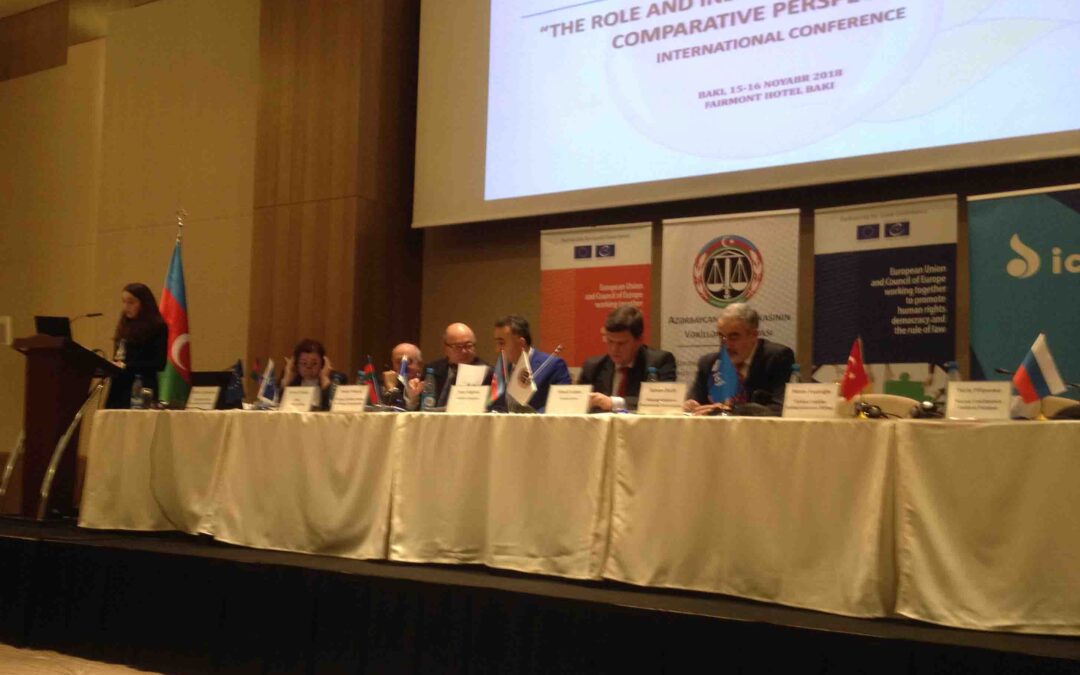
Nov 30, 2018 | News
The International Commission of Jurists (ICJ) together with the Council of Europe and the Azerbaijan Bar Association held the international conference on the independence of the legal profession in Azerbaijan on 15-16 November 2018.
The conference on the Role and Independence of Lawyers brought together comparative perspectives from countries of the Council of Europe region and Central Asia as well as from international organizations. Representatives of bar associations and individual lawyers from Azerbaijan, Georgia, Kazakhstan, the Netherlands, the Russian Federation, Switzerland, Turkey, Ukraine, the United Kingdom and Uzbekistan shared their experiences and best practices in addressing challenges to the independence of lawyers.
The ICJ considers the conference to be a landmark event which has created much-needed space for further dialogue on the issue of independence of lawyers in Azerbaijan both with the national and international stakeholders.
The ICJ appreciates the engagement of the Azerbaijan Bar Association and the open debate on these issues at the conference, as a step towards implementation of its previous recommendations that the Bar Association “should initiate, through a consultative process, an internal reform based on the principles of independence of the profession, high standards of legal practice, the protection of lawyers from threats, harassment and hindrance in their work, and the democratic participation of its members.” Defenseless Defenders: Systemic Problems in the Legal Profession of Azerbaijan
The ICJ stresses the need for the Azerbaijan authorities to respect both the institutional independence of the legal profession, and the individual independence of lawyers, in accordance with the international standards outlined at the conference and in the above-mentioned report. Decisions of competent international human rights authorities, including the European Court of the Human Rights, in cases concerning the rights of lawyers, must be implemented in full.
The ICJ looks forward to future dialogue and co-operation with the Azerbaijan Bar Association and other concerned stakeholders in Azerbaijan on the essential elements of an independent legal profession, including as regards lawyers’ professional ethics, qualification of lawyers and the disciplinary system. The new impetus for international engagement on these issues creates room for discussing the most acute institutional challenges and individual cases where the independence of the legal profession may be at stake.
Speaking at the Conference, Róisín Pillay, Director of the ICJ Europe and Central Asia Programme said that “the requirement of independence places responsibilities not only on the bar association itself but also on the executive and legislative powers to respect this independence, refrain from interference, and put in place – and respect in practice – appropriate legislative and institutional safeguards.”
Participants underscored problems relating to the ethical responsibilities of lawyers and their enforcement in disciplinary proceedings, in particular as regards potential friction with the exercise of freedom of expression of lawyers.
Temur Shakirov, ICJ Senior Legal Adviser, focused on the independence of lawyers as an ethical requirement of individual lawyers, saying that “Independence is an essential principle both for the bar association as an institution and for an individual lawyer. It is known that the institutional independence of the legal profession should be ensured, in accordance with international standards, both in law and in practice. However, the independence of lawyers is also an ethical requirement for each lawyer.”
Henry Reznik, Vice-President of the Federal Chamber of Lawyers of the Russian Federation, stressed in his presentation that “the primary role of the association of lawyers is to protect their [lawyers’] independence and freedom.” He added that “Advokatura is an institute of the civil society. Advokatura is not part of the State and municipal bodies. And Advokatura must have the trust of the society.”
Yuri Pilipenko, President of the Federal Chamber of Lawyers of the Russian Federation, highlighted the natural tensions between the legal profession and government, noting that “… the government and an independent self-regulating professional organization, which has goals to protect rights and freedoms and access to justice, are by definition opponents in a certain sense.”
In his concluding remarks at the Conference, Anar Baghirov, President of the Azerbaijan Bar Association, highlighted that the most crucial mission of the Bar Association was “to protect interests of lawyers and the institutionalized legal profession.”
In that regard he mentioned the need for modification of the Law on Advocates and Advocates’ Activity, stating that the most important role of the Bar Association should be reflected in the law. In addition, among other things he mentioned that issues to be addressed included the number of lawyers, increasing availability of pro bono legal aid, enhancing lawyers’ professional capacity, and cooperation with other countries’ bar associations and international organizations.
In his closing remarks at the Conference, ICJ Secretary General Sam Zarifi stressed the importance of lawyers in the protection of human rights and the rule of law. He stressed that around the world, lawyers were attacked because of their role in defence of their clients: for what they say, what the individuals they represent say, and that such attacks violate the clear prohibition of identifying lawyers with their clients.
He stressed the key role of the bar association in this regard: “To maintain the role of lawyers we have heard again and again how important it is that lawyers have the independence and an association that can pretend this independence. It is part of international law and standards and we would like that standard to be implemented around the world and of course here [in Azerbaijan]. We need bar associations, which are independent and strong to defend the independence of lawyers.”
The ICJ will continue to closely follow issues of the independence and role of lawyers in Azerbaijan. It will continue its international engagement on such matters including with UN and Council of Europe institutions, as well as with lawyers and civil society in Azerbaijan in order to facilitate the independence of lawyers, their protection from harassment and reprisals, and other key principles in line with the UN Basic Principles on the Role of Lawyers.
Background information
Problems regarding independence of the legal profession in Azerbaijan were outlined in the ICJ report “Defenseless Defenders: Systemic Problems in the Legal Profession of Azerbaijan” https://www.icj.org/azerbaijan-the-independence-and-role-of-lawyers-must-be-respected-icj-report-says/
The ICJ has raised concerns regarding cases of abusive disciplinary proceedings and other threats to the independence of lawyers, including:
Cases of Democracy and Human Rights Resource Centre v. Azerbaijan and Mustafayev and Democracy and Human Rights Resource Centre v. Azerbaijan: https://www.icj.org/azerbaijan-icj-intervenes-before-european-court-of-human-rights-in-defence-of-harassed-lawyers-and-civil-society/
Azerbaijan: Lawyer Irada Javadova disbarment decided in unfair proceedings, https://www.icj.org/azerbaijan-lawyer-irada-javadova-disbarment-decided-in-unfair-proceedings/
Alayif Hasan oglu Hasanov v. Azerbaijan case: https://www.icj.org/azerbaijan-icj-intervenes-before-the-european-court-of-human-rights-in-a-case-concerning-restrictions-of-lawyers-rights/
Cases of Annagi Hajibeyli, Khalid Bagirovand Intigam Aliyev v Azerbaijan, https://www.icj.org/wp-content/uploads/2016/11/ICJ-Bagirovothers-AmicusBrief-Azerbaijan-2016-Final.pdf
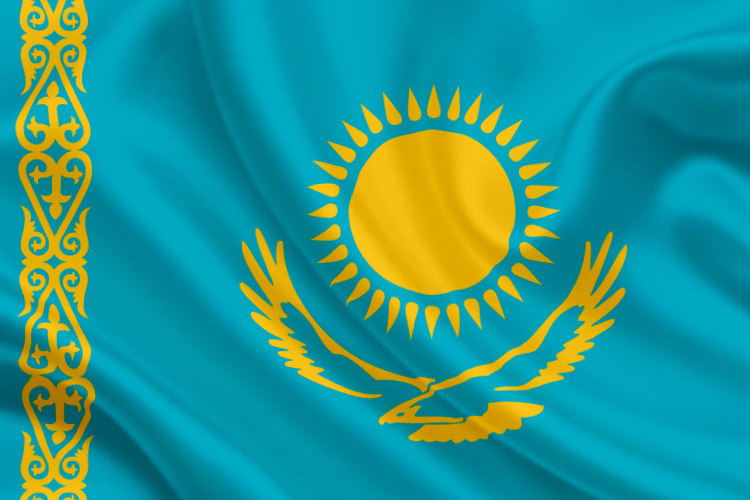
Nov 23, 2018 | News
The ICJ is concerned at increasing government interference with the independence of the legal profession, including through intimidation and harassment of the leadership of the National Bar Association and individual lawyers in Kazakhstan.
In the last two months, there have been a series of resignations in the leadership of the National Bar, including Anvar Tugel, ex-President of the National Bar Association who publicly announced that his resignation was the result of “disagreement with the reform proposed by the Ministry of Justice”.
He explained that the “reform” aimed to remove the leadership of the Bar Association.
In his public statement, Tugel points out that several presidents of the local bar associations, faced pressure.
Indeed, Yakubenko Raisa and Vladimir Zolotov presidents of Aktyubinsk and Pavolodar bar associations respectively faced disbarment proceedings in the Kazakhstan courts, initiated by the Ministry of Justice.
The disciplinary charges against them are related to their administration of the bar associations.
He also pointed out that pressure was also exerted on individual lawyers, who had been invited to the Ministry of Justice and instructed which decisions to vote for at the National Conference of delegates of the regional bar associations.
Furthermore, Sergei Sizintsev, the Executive Director of the National Bar Association, has been unexpectedly dismissed from his position following the resignation of Anvar Tugel.
“Instructions about the outcome of the vote, apparently unjustified disciplinary proceedings against high profile lawyers and other such actions constitute interference with the independence of the legal profession and are of concern” Temur Shakirov, ICJ Europe and Central Asia Programme Senior Legal Adviser, said today.
“These developments cannot but create a chilling effect on the lawyers in Kazakhstan, including those independent lawyers who openly spoke against the reform of the legal profession,” he added.
Such measures are inconsistent with international law and standards on the independence of the legal profession, including the United Nations Basic Principles on the Role of Lawyers.
The ICJ calls on the State authorities, including the Ministry of Justice, to refrain from interference with the internal matters of the Bar, especially with the election of its governing bodies.
The interim leadership of the National Bar Association should ensure that elections to positions in the governing bodies are fair and transparent and are not a result of inappropriate interference from whatever quarter.
The ICJ will continue to monitor developments regarding the Kazakhstan legal profession, including disbarment proceedings against heads of regional bar associations, and other instances of apparent pressure on lawyers related to their opposition to reforms of the profession earlier criticized by the ICJ.
Background
The UN Basic Principles on the Role of Lawyers state that lawyers are entitled to form and join self-governing professional associations to represent their interests, promote their continuing education and training and protect their professional integrity.
The executive body of the professional associations shall be elected by its members and shall exercise its functions without external interference (Principle 24)
International principles on the role of lawyers also require the State to ensure that neither disciplinary sanctions, nor other measures such as criminal penalties, are unfairly or arbitrarily imposed on lawyers for action taken in accordance with their professional duties, and in accordance with accepted standards of professional conduct, including those enshrined in the Basic Principles on the Role of Lawyers
According to Principle 16 of the UN Basic Principles it is the obligation of the governments to ensure that lawyers “are able to perform all of their professional functions without intimidation, hindrance, harassment or improper interference” and that they do not “suffer, or be threatened with, prosecution or administrative, economic or other sanctions for any action taken in accordance with recognized professional duties, standards and ethics”.
The Law ‘On the Professional Activities of Advocates and Legal Assistance’ was signed into law on 10 July 2018.
Earlier the ICJ expressed concern in respect to the new law, as contradicting international law and standards on the independence of the legal profession, by enabling the executive to influence or to have control over who is allowed to practice law and substantial influence on disciplinary proceedings against lawyers. Read the full text here.
Read also
ICJ statement following the mission to Kazakhstan on the independence of the legal profession.
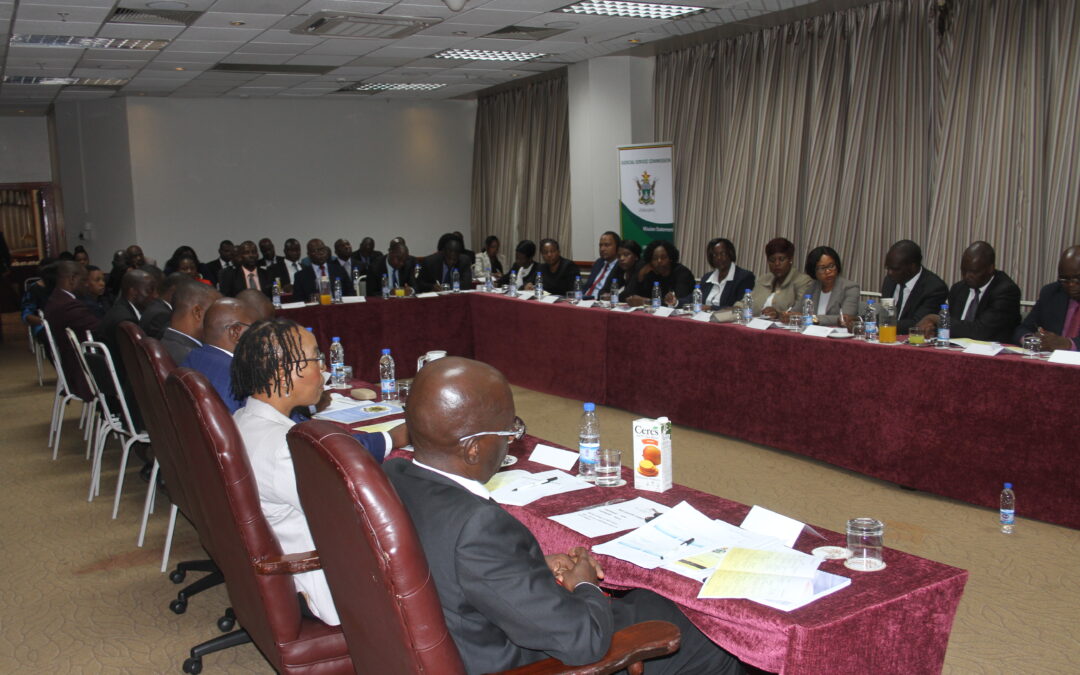
Nov 17, 2018 | News
The Judicial Service Commission (JSC) of Zimbabwe with the support of the ICJ convened a two-day workshop from 16 to 17 November 2018 in Harare to train magistrates designated to the anti-corruption court. 56 Magistrates (39 males 17 females) attended the Workshop.
Speaking during the workshop the Honourable Chief Justice, Luke Malaba encouraged the magistrates to work diligently to “flash out” corrupt elements from society.
He lamented that the current court practice seems to merely launder accused persons through constant remands which eventually lead to failed cases resulting in impunity for corruption in the country.
He pointed out that corruption is a threat to the rule of law urging the judiciary to be conscientious in dealing with corruption cases.
The workshop is part of a broader justice sector intervention by the JSC with the support of the ICJ, through generous funding provided by the European Union (EU) targeting combating corruption in the legal system.
The two-day training meeting looked at equipping 56 magistrates with the skills and knowledge to adjudicate cases of white-collar crime.
The training covered international best practices in the setting up of such courts, substantive law on corruption and practical court administration issues.
Besides the quality of the investigations, the effectiveness of the anti-corruption courts will also depend on the integrity and competency of the officers appointed to preside over them.
This workshop is one of a number of initiatives that the JSC are effecting with the support of the ICJ and the EU to contribute to a reduction in the levels of corruption and strengthen the ability of the justice system to resolve corruption and resource diversion cases in Zimbabwe.
Contact
Brian Penduka on brian.penduka(a)icj.org or +263772274307









